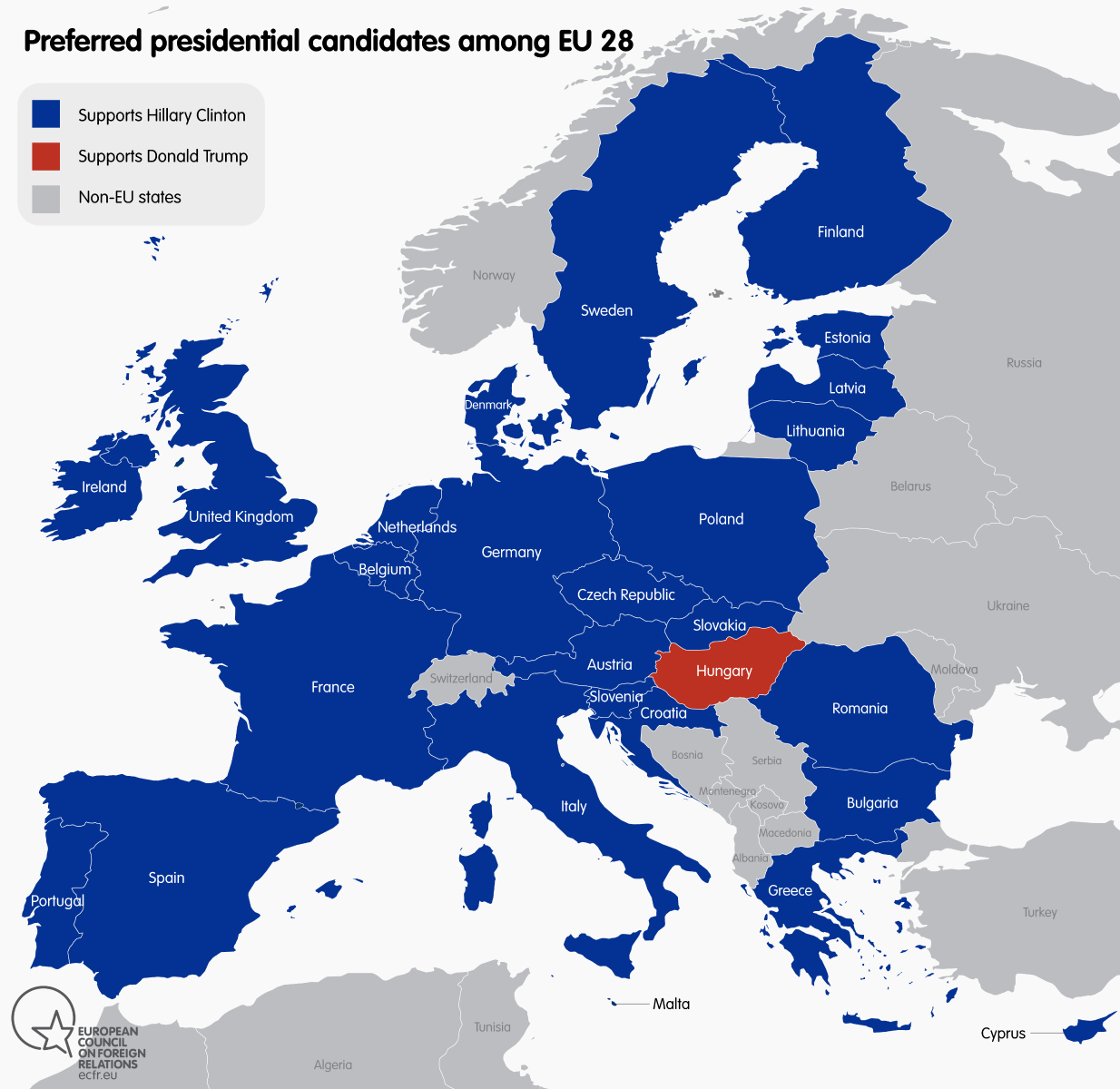Fear and loathing on the road to the US elections
European leaders are underestimating the danger that Trump presents to the transatlantic alliance and assuming too much continuity in the event of a Clinton presidency.
US presidential elections are vastly entertaining spectacles. Like a well-crafted television series, this election offers character development, shocking plot twists, and unique insight into the increasingly debased nature of US political life. This year’s contest, which pits the first female nominee against a billionaire reality television star, represents a pinnacle of any election’s entertainment value. Like Americans, Europeans consider it must-see TV.
But at times, intense attention to the spectacle obscures what is really at stake for Europe in the election. The United States plays a critical role in European security, European economics, and even European cultural life. As our recent policy memo on the implications of the election highlights, both candidates represent serious — and in Donald Trump’s case perhaps existential — challenges to Europe. Regardless of the outcome, the European response to the next US president’s challenge will, perhaps, be the most consequential European foreign policy variable in the next four years.
The responses we collected show a wide variety of views across Europe. But one theme emerges strongly. Europeans, particularly those in government, yearn for the elusive continuity of the transatlantic relationship. They have a deep desire for the US to continue and even enhance its role as a provider of security of Europe. Consequently, they broadly prefer Hillary Clinton — the candidate most associated with continuity — to win the presidency.
Hope often begets expectation. The survey demonstrates a deep reluctance to believe that the current rhetoric on reducing the US role abroad will translate into an actual effect on US foreign policy. In contrast, many US commentators argue that, regardless of the outcome of the election, political trends in the United States and geopolitical trends abroad mean that the US role in the world will need to change.
Within that broad message, several interesting conclusions emerge:
Security first
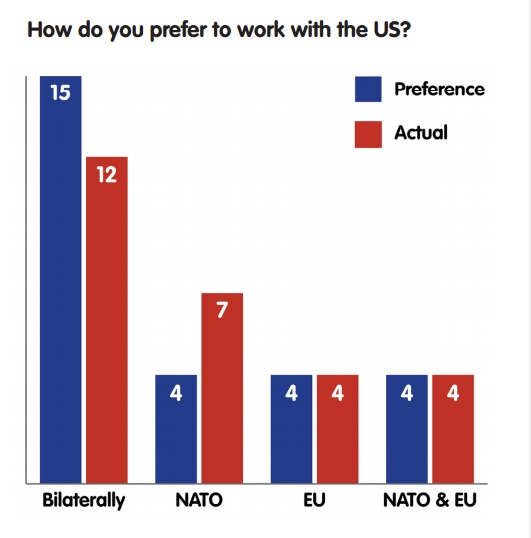
Most member states still see security as the most important priority in their relationship with the United States and assess the Clinton and Trump presidency in those terms. All member states see the United States as important in other realms, but security tends to dominate their perception. Security, however, means different things in different parts of Europe.
In western Europe, it means help with counterterrorism, and countries such as France, the United Kingdom, Belgium and Germany view sharing intelligence with the US as critical to their ability to protect themselves at home. Similarly they see US efforts in the Middle East a critical to reducing the influence of transnational terrorist groups such as ISIS and Al-Qaeda.
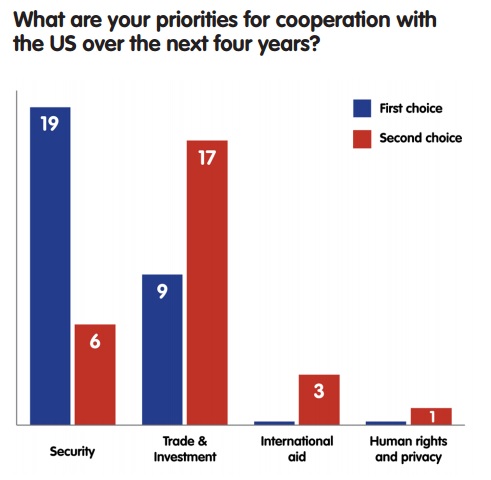
In eastern Europe, particularly in Poland and the Baltic States, the US is seen as a security guarantor against Russia. These member states look to increased US political engagement and increased US military presence to provide them with a measure of deterrence against Russia. Implicitly, there is very little faith in the European Union or their European national partners to credibly play this role. It seems to matter little that over the last eight years the Obama admin istration has attempted a reset with Russia and waxed strategic about pivoting US resources to Asia. Eastern members of the EU still believe in the stalwart United States of the Cold War and the feckless Europeans of the interwar period.
Many of the newer and smaller states of the European Union do not trust the EU machinery and the larger established EU powers, and a number of them — including Malta, Bulgaria, Denmark, Portugal, and Spain — see their “geostrategic location” or military as an asset in relations with the US. They look to bilateral relations with the United States more often than EU-US relations as the most important way to protect their interests.
America the beautiful and the ugly
Coupled with the desire for US protection, there is an overwhelmingly positive view of the United States by governments and mainstream political parties across Europe. This is perhaps surprising given the volume of reporting dedicated to the various struggles in the US-European relationship, ranging from the NSA spying controversy to protests over the Transatlantic Trade and Investment Partnership (TTIP) — a free trade pact currently being negotiated by the US and the EU.
But for governments, the world is becoming an ever more difficult place. And a desire for stability can cover a multitude of sins. Whether governments are afraid of terrorism or Russia, their need for US protection has relatively easily translated into a positive view of the country they feel is most able to provide it. Even Greece, traditionally the most anti-American European country — and ruled by the far-left anti-capitalist Syriza party — now sees a positive relationship with the United States as essential to its security (though the Greeks want protection from the Germans).
They believe the United States will help them because of the American interest in an economically stable EU. An important exception to this rule is Hungary, which takes a dim view of the United States and seems broadly uninterested in its protection. Despite Hungary’s chequered history with the Soviet Union and leader Viktor Orbán’s own history of anti-communism, Hungary seems to prefer the Russian strongman to the American (or European) hectoring about democracy and rule of law.
In this view, Hungary might conceivably be a harbinger of populist governments to come. A previous ECFR scorecard highlighted that the new “insurgent” parties that are challenging European governments across the continent take a staunchly anti-American line. In some cases anti-Americanism was stronger than any anti-EU perspective, with parties often leaning towards Russia instead of the US.
Clinton vs. Trump
How countries feel about the United States seem to effectively determine how they approach the US presidential election. Clinton is clearly the candidate of continuity and as such is the preferred choice of those who already look favourably on the United States — this being almost every government and mainstream party in Europe. But the Hungarian government is once again an important exception, having publicly expressed a preference for Donald Trump to win. Many of Europe’s insurgent parties follow suit.
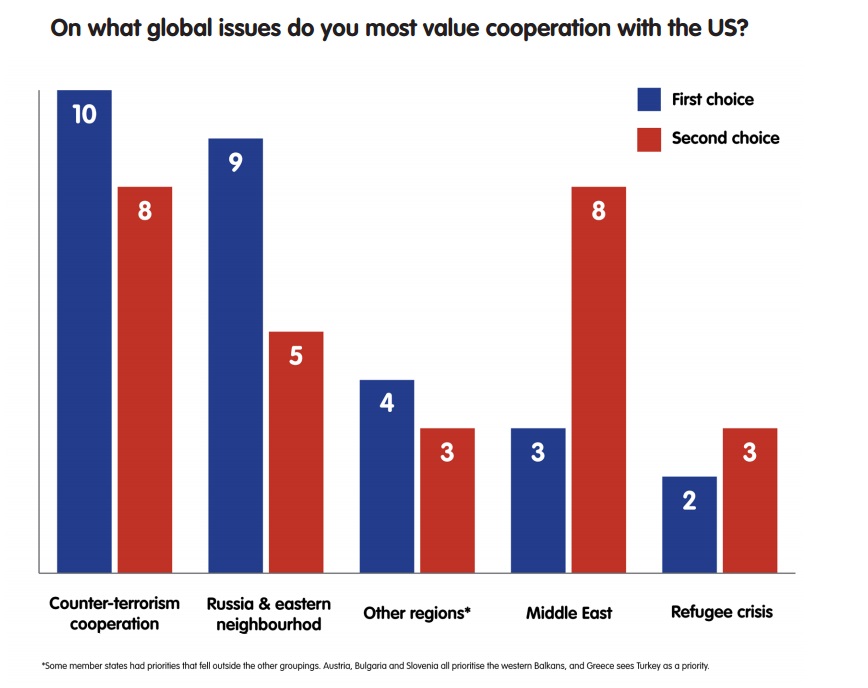
Europeans, like Americans, have been fascinated and of ten appalled by the Trump phenomenon. But overall, the survey makes clear that even Europeans opposed to Trump don’t see him in the same apocalyptic terms as his American opposition. Trump is certainly seen as unpredictable and ignorant, but a strong sense emerges from the surveys that either he doesn’t mean what he says on the campaign trail or that he will be effectively constrained by the US system of checks and balances from implementing them. His threat of withdrawing from NATO and of banning Muslims from the United States, while certainly unwelcome, are not taken very seriously in Europe.
This is a dangerously complacent notion. As a recent ECFR paper makes clear, Trump has held his views on US alliances for a very long time and they are not mere whims of the campaign. The power of the US presidency in foreign affairs means that the President’s wish is never far from policy.
Europeans seem to recognise in Trump a populism that has long had an important influence in their own societies. It has, of course, had important political effects in Europe and threatens to deliver many more in the future, but the worst imagined excesses of populism in Europe have thus far been largely contained by strong institutions and civil societies. Europeans clearly hope that the same will be possible in a Trumpian United States.
Particularly in the eastern parts of the EU there have been concerns about Trump’s budding “bromance” with Russian President Vladimir Putin. This factor was probably decisive in stopping the Polish Law and Justice government for following Hungary’s lead in supporting Trump. But once again, a broad view emerges that even here, the strength of the American system — and the inherent perfidy of Vladimir Putin — would soon lead even a Trump administration back onto the righteous path.
EU member states believe that Clinton is likely to be a far more normal president, which goes a long to explaining why she is by far the preferred candidate. Europeans seem inclined to believe that the transatlantic relationship can endure in more or less its current form if she is elected. There are still worries about Clinton of course, particularly when it comes to the Middle East. As in the United States, European political elites seem to view Clinton as a throwback to the pre-Obama era of hawkishness and use of force in the Middle East. Some welcome the idea of a more assertive American approach, but many seem worried that a Clinton intervention in the Middle East may once again roil the region and leave behind a mess that affects Europe more than the United States.
Leverage with the United States
One of the most interesting findings of our research is where Europeans think they have leverage with the next US administration. Overall, of course, Europeans do have great influence on US policy and great leverage, at least potentially, over US decisions. They have demonstrated this repeatedly on issues such as privacy, competition policy, and most recently, tax policy. These, however, are broadly EU competences and many of the member states find potential for their individual leverage in places that are more surprising, at least from the perspective of this former US government official.
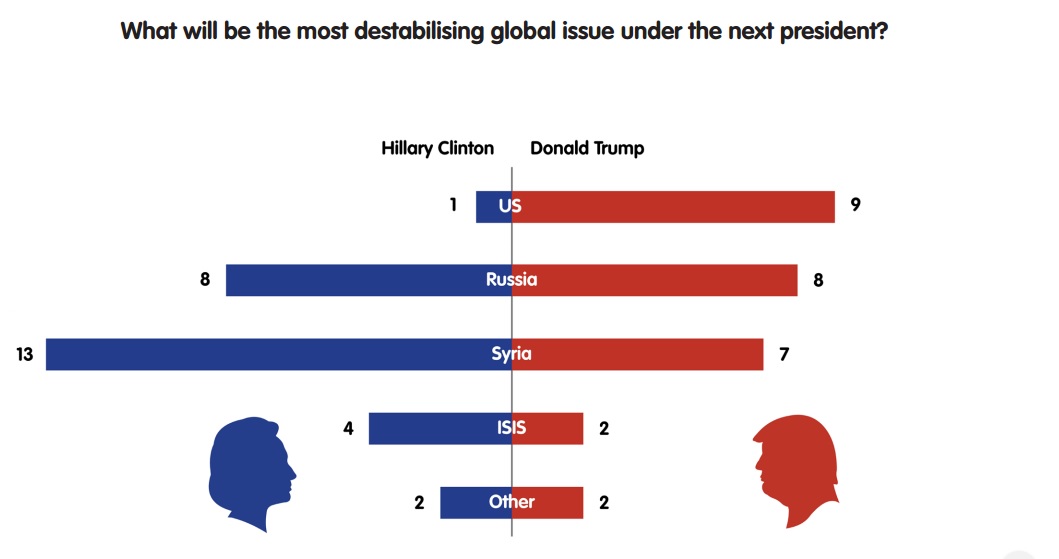
TTIP is a good example. Many EU member states see TTIP as a favour to the United States, which is not the way the US government sees a pact that is more economically beneficial to Europe. European governments believe that their veto power in any ratification of TTIP means they have leverage with the next US president which they can use in the course of the negotiations. This difference in perception over who wants and needs the trade pact more may well help explain why the TTIP negotiations are progressing so slowly.
Another curious example of presumed leverage emerges from Brexit. Following Charles De Gaulle’s description, continental Europeans have often viewed the UK as a “Trojan Horse” for the United States within the EU, even if the United States didn’t see it that way.[6] Now that Britain is leaving the EU, they believe the job is open and many member states hope to fill it. Several member states see themselves as well-placed to serve as a special interlocutor between the United States and the EU, including France, Germany, Spain and Portugal. They will accordingly look to establish this type relationship with the next US president.
Not ready for the next president
Overall, this survey presents a picture of a Europe that is not prepared for the next US president, no matter who she is. Broadly, European leaders are misjudging the danger that Trump presents to the alliance and the world; they are assuming too much continuity in the event of a Clinton presidency; and they are misidentifying the key sources of their leverage with the next administration. Individual European governments simply don’t have the kind of leverage with the United States that they think do — they have only managed effective leverage when they work together.
Of course, leaders and governments have never been particularly good at predicting the future. As with us all, their predictions are too often clouded by their desires and interests. They will probably have to learn about the next administration from hard experience rather than intellectual preparation. It has probably always been this way. But given the current state of Europe and its overall tendency for inaction, this type of intellectual short-sightedness now seems like a vice that Europe cannot afford to indulge.
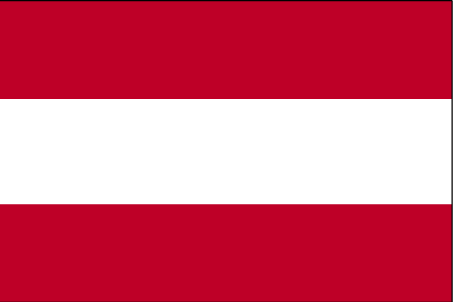
Austria

- NATO Member: No
- Military expenditure as % of GDP: 0.7%
- US population identifying as Austrian: 677,847
- Total trade with US (2015): $15,378,440,742
- Foreign direct investment from the US (2014): $15,787,000,000
Priorities in the transatlantic relationship
Since Austria is not a NATO country, relations with the US are primarily focused on trade and investment. After Germany, the US is Austria’s second most important trading partner. Security is the second key area of cooperation, with Austria forming part of the international coalition against ISIS. Austria also participates in counter-terrorism activities, but, intelligence cooperation is more one-sided, with the US using Vienna as a hub for its intelligence activities regarding the UN and other international organisations. The imbalance in this aspect of the relationship has generated debate at the national level. Russia and the Middle East are also of significant interest to Austria.
National comparative advantage
Although Austria has some criticisms of TTIP, the government believes that a common trade agreement would favour both Europe and the US. It also believes that if the EU shows greater commitment to Europe’s security through increased investment in defence, a new kind of burden-sharing arrangement could be found with the US that would be useful on both sides of the Atlantic. Austria believes that its continued engagement in the Western Balkans and commitment to international peacekeeping more generally is important to the US, and makes it a valued partner despite it not being a member of NATO.
The role of EU and NATO
In terms of trade and investment – with the exception of TTIP, technology transfer and start-ups – Austria prefers to conduct its relationship with the US bilaterally. NATO is only used as a forum when peace-keeping activities, for example in the Western Balkans, are concerned. Multilateral forums, including the EU, are used for issues such as the promotion of democracy and human rights, disarmament, and countering the proliferation of weapons of mass destruction.
Austria is watching post-Brexit developments closely to see whether this will lead to a strengthening of NATO as the key pillar for European security and defence policy at the cost of the EU’s Common Security and Defence Policy, which Austria would favour. Furthermore, Austria is concerned about the effect on the EU of a possible shift, with the UK leaving, towards a more dominant Franco-German axis in EU-US relations, as well as elsewhere.
Views on the US elections
A Gallup poll in June 2016 showed that Austrians are among the most critical Europeans of American leadership. According to the poll 60 percent viewed US leadership in the world negatively and only 34 percent as positive. Austria expects no major shocks to the international system in the event of a Hillary Clinton win, with the continuing threats coming from international terrorism, the Syrian War and ISIS. There are, however, strong concerns that the United States under Donald Trump could destabilise the world, particularly if the US extracts itself from the EU. There are hopes within the Austrian government that good relations between Trump and Putin might positively affect the Syrian crisis.

Belgium

- NATO Member: Yes
- Military expenditure as % of GDP: 0.9%
- US population identifying as Belgian: 350,123
- Total trade with US (2015): $54,146,729,838
- Foreign direct investment from the US (2014): $10,000,000
Priorities in the transatlantic relationship
Given the terror attacks in Belgium and neighbouring France over the past year, the Belgian government’s top priority remains security, and this also applies to the transatlantic relationship. In the next few months, the threat level is expected to remain high and Belgium views cooperation as crucial, not only with the US but with all Belgium’s international partners. In particular, Belgium values the transatlantic partnership in relation to Russia and Ukraine, the Middle East, and broader counter-terrorism and intelligence activity, not least in the Great Lakes region in Africa.
In spite of the lack of progress on TTIP, trade and investment remains the second priority for Brussels in its relationship with Washington. The US is the fifth largest export market for Belgian goods and its fourth largest source of imports.
National comparative advantage
Belgium continues to hope that TTIP will be concluded under the next US administration, and believes it should remain of high importance to both the EU and the US. At a national level, Belgium’s major asset when dealing with the United States is the fact that the country hosts two such important international organisations: NATO and the EU. This gives Belgium a visibility that other small EU countries do not have. For example, by hosting the next NATO summit, it is likely to become one of the first EU countries visited by the next US President. The port of Antwerp — a major commercial entry point into Europe — is seen as a key geo-economic asset by Belgian officials. In the counter-terrorism context, Belgium’s recognised expertise in Central Africa is considered important by Washington.
Belgian officials believe the Battle of the Bulge remains vivid in America’s collective memory and can sometimes be successfully instrumentalised in the relationship. In 2004, after the tensions resulting from Belgium’s opposition to the invasion of Iraq, the 60th anniversary of the battle was used as an occasion on which to stress the depth of the US-Belgian friendship.
The role of EU and NATO
Given the fact that Belgium has few direct means of influencing the US, the government prefers to work through institutions, although it retains a preference for bilateral co-operation where possible. As far as security issues are concerned, NATO is the most used forum. The EU is favoured for discussing economic issues.
Views on the US elections
All the parties participating in the Belgian government consider that transatlantic cooperation must be prioritised in external relationships, especially on security issues. The minister of defence recently announced that he would increase the Belgian armed force’s budget to meet the NATO expectation of 2 percent of GDP. The opposition parties’ view of the United States is also broadly positive, although there are some reservations on the left.
Belgians share the same concerns as other Europeans that Donald Trump will follow through on his threat to withdraw US support for the European neighbourhood, but there are also worries about a
more activist foreign policy under Hillary Clinton. Whoever is the next president, Belgians expect the most destabilising element in the international system to remain the Syrian war, which is intimately linked with the ISIS threat. This is seen as the issue which will most test the reliability of the US as an ally over the next few years.
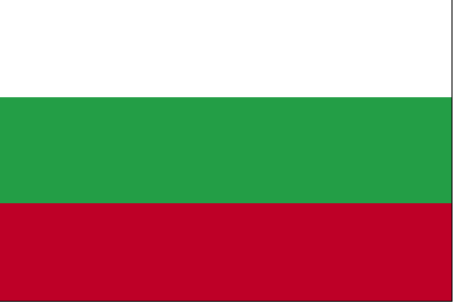
Bulgaria

- NATO Member: Yes
- Military expenditure as % of GDP: 1.4%
- US population identifying as Bulgarian: 96,970
- Total trade with US (2015): $912,444,922
- Foreign direct investment from the US (2014): $518,000,000
Priorities in the transatlantic relationship
Security is Bulgaria’s top concern regarding the US. This covers a wide range of areas: Cooperation within NATO, supply of weapons and the training of Bulgaria’s armed forces, energy security, counter-terrorism and intelligence cooperation. Currently, the most immediate concerns for Bulgaria stem from the conflicts and instability in the Middle East, related terrorist threats, and the resulting refugee wave. The Balkans also remain a longer-term high priority on the agenda, along with Russia, the Ukraine crisis and the Black Sea/South Caucasus region. Bulgaria respects continued US leverage and influence in the region. Trade and investment is another priority area. Bulgaria’s government supports the conclusion of TTIP negotiations. Within this sphere, energy supply and security is also crucial.
National comparative advantage
Bulgaria views security and trade co-operation as the EU’s main levers in negotiating a strong relationship with the new US president. It does not consider it has special advantages over other EU member states in dealing with the US but there are some factors which give it a level of influence. First, Bulgaria borders regions of interest to the US, including the Black Sea, eastern Turkey, and the Balkans. Secondly, Bulgaria hosts four joint use military bases used by the US for training, refueling and logistical support for its forces. Thirdly, it has both EU and NATO membership and relative stability and predictability in a difficult region. Bulgaria also regularly participates in US-led and NATO missions.
The role of EU and NATO
Bulgaria prefers to work with the US primarily on a bilateral basis. Its second preference is to work through NATO on security and military issues, then through the EU on other issues, and in some cases operates through other multinational institutions.
Sometimes it will combine more than one approach. On the issue of the US visa waiver programme – a hot topic since Bulgarians do not currently benefit from it – Bulgaria hopes that working through the EU might be effective, although the usual and preferred channel of communication is bilateral.
Views on the US elections
The Bulgarian government appears to favour Hillary Clinton over Donald Trump, not least because she is known as a foreign secretary and familiar to policymakers. There is some overlap between the viewpoints of the main opposition parties and Trump, mostly because he is considered friendlier to Russia, critical of NATO, anti-immigration, and protectionist in trade relations, but there is no particular support for either candidate. The population generally seems to favour Clinton, but Trump’s views – especially on immigration – have generated interest too. Whichever candidate wins, Bulgaria’s to concerns about the world remain the same: Syria, ISIS and instability in the Balkans and the Black Sea region, followed by the Russia threat and the possibility of a different US–Russia relationship under Trump.
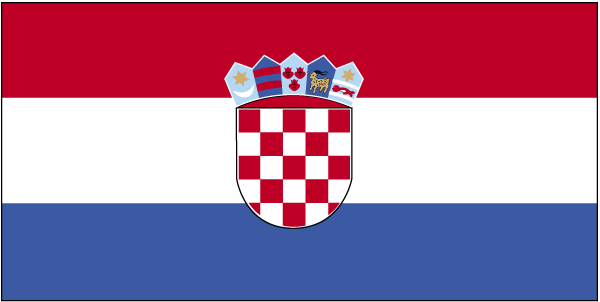
Croatia

- NATO Member: Yes
- Military expenditure as % of GDP: 1.6%
- US population identifying as Croatian: 409,949
- Total trade with US (2015): $921,333,661
- Foreign direct investment from the US (2014): $0
Priorities in the transatlantic relationship
Trade and investment are the highest priority for Croatia regarding the next US administration, especially when it comes to the energy sector. Specifically, the Croatian government is highly likely to seek out investor support for projects under the “Adriatic-Baltic-Black Sea Initiative” as a contribution to the overall growth of the region.
Security is the second most significant area of transatlantic cooperation for Zagreb, particularly counter-terrorism and intelligence cooperation. This is followed by the Western Balkans, with concerns over migrant routes, as well as with arms, drugs, and people-smuggling routes.
National comparative advantage
As a small country, Croatia does not possess the resources to directly influence US foreign policy. It therefore works with the general EU consensus, in the hope of using the EU’s influence to achieve specific national and regional goals. Zagreb’s perception is that for EU-US negotiations to work, interests should, whenever possible, be maximally aligned. The joint American and European position on Ukraine, and the implementation of sanctions against Russia, are viewed as a key example of the relationship working well.
The role of EU and NATO
Since Croatia has neither the capacity nor the influence to sustain significant bilateral contact with the US, it invests instead in the development of strong EU positions vis á vis the US, which reflect its national position. Still, Croatia is proud of its record when it comes to bilateral defence and security cooperation with the US, which was formally established in 1995. This cooperation has also gained a political aspect, with the US supporting Croatia’s accession to full membership in NATO and the EU.
When it comes to military, defence, and security challenges which surpass Croatia’s resources, the country tries to articulate its interests through NATO. Russia’s actions in Ukraine, and the threats emanating from the wider MENA area fall into this category of co-operation.
From Zagreb’s perspective, Great Britain has played a key role in the synchronisation of the US and EU policies. Brexit will create a vacuum which will eventually be filled by one of the remaining major EU countries. Croatia expects that Germany will probably assume this position.
Views on the US elections
Generally, the US is viewed broadly positively by the government, the major opposition parties and the public. The only exception to this widespread perception is the populist, anti-establishment Human Wall party. The Human Wall blames both the EU and the United States for the refugee crisis, attributing the crisis to their having financed militant and terrorist movements in Syria and the wider Middle East.
The government has not made any official comment on the current US presidential candidates, but Donald Trump’s candidacy is undoubtedly creating uncertainty in Croatian foreign policy and diplomatic circles, particularly regarding the views he has articulated on Russia and Ukraine, and his plan to “reconsider” traditional alliances in Europe. Hillary Clinton, on the other hand, enjoys more support, but her campaign speeches, which indicate a possible increase in intervention in the Middle East, cause some concern.
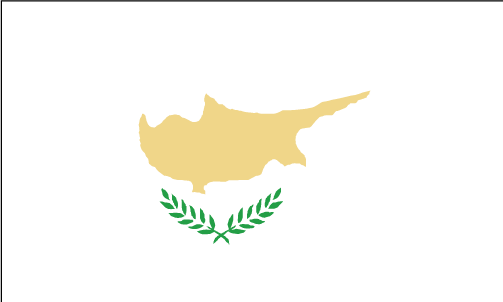
Cyprus

- NATO Member: No
- Military expenditure as % of GDP: 1.8%
- US population identifying as Cypriot: 6,295
- Total trade with US (2015): $134,412,552
- Foreign direct investment from the US (2014): $2,150,000,000
Priorities in the transatlantic relationship
As a small but strategically-placed country, security comes first for Cyprus. The government attributes a lot of importance to achieving peace and stability in the Middle East, given its proximity to the troubled region. Cyprus was one of the founding members of the international anti-ISIS coalition, and welcomes US involvement in the fight against ISIS and in trying to find solutions to the war in Syria. It also views counter-terrorism and intelligence cooperation as vital, not least as a means of achieving long-awaited peace in the Middle East. Its second greatest priority is international aid, which it views as an important component of a holistic response to the refugee crisis.
National comparative advantage
Cyprus sees the TTIP agreement as an opportunity to boost relations across the Atlantic. Cyprus would like the agreement to be finalised as soon as possible, and views its completion as a goal for both sides rather than something that the EU needs to secure from the US. In addition, the cooperation of EU states with the US on counter-terrorism and sharing of intelligence is considered to be of importance to the US. Within this, Cyprus has no illusions about having a particular national advantage, but believes that the geographic position of the island is useful and has strategic advantages for the US in its dealing with the Middle East and North Africa. The increase in US investment in banks operating in Cyprus following the financial crisis, as well as exploratory drilling by Noble Energy has helped build a positive outlook for the future of the relationship.
The role of EU and NATO
Cyprus’ main lines of cooperation with the US are through the EU, and it is diligent in staying close to collective EU positions. However, the Cypriot government also has bilateral contact with the US, particularly when it comes to the security and stability of the Middle East and the fight against terrorism. Cyprus prefers to work through the EU, then bilaterally if need be. Officials regard NATO as the country’s third preferred forum for liaising with the US.
Views on the US elections
Representatives of the Cypriot government have so far avoided speculating about the US presidential candidates. Regardless of who wins their biggest concern will remain the war in Syria and the presence of ISIS in the region. Coupled with this are the connected threats of the rise of terrorism and refugee flows into Europe. The government is keen to see the US continue its active diplomatic involvement in the Middle East region. Few doubts have been expressed about Clinton, but the Cypriot government has expressed disapproval of Trump’s views on Muslims and immigration.
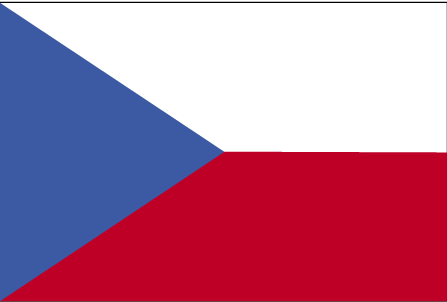
Czech Republic

- NATO Member: Yes
- Military expenditure as % of GDP: 1.0%
- US population identifying as Czech: 1,391,020
- Total trade with US (2015): $6,586,075,880
- Foreign direct investment from the US (2014): $7,247,000,000
Priorities in the transatlantic relationship
Security is the biggest concern of the Czech Republic. Recent developments in the EU neighbourhood – namely Ukraine and Syria – are where the Czech Republic feels that US support is most needed. After security, the second priority for the country is trade and investment. The Czech government strongly supports the conclusion of TTIP, although there are some concerns, mainly related to the investment protection part of the treaty. The Czech government sees TTIP and generally trade and investment relations with the US as one of the tools that can boost economic development in the Czech Republic and the EU. The Czechs also place human rights high on their list of priorities; it has been a Czech priority for many years to Vaclav Havel’s influence and there is a long track record in Czech-US cooperation on these issues.
National comparative advantage
The Czechs believe that Europe’s levers for negotiation with the US are relatively limited. But they cite trade and the opening of European markets as a means of improving and stabilising their own neighbourhood. The Czechs believe that the legacy of Vaclav Havel and his friendship with the US still unlocks some doors in Washington, although the effect is slowly fading. The active Czech embassy in Damascus, which works closely with the US, is appreciated by Washington. Prague also believes it benefits from being one of the most pro-Israeli countries in the EU.
The role of EU and NATO
The Czech Republic prefers to manage its relationship with the US bilaterally as much as possible, then through NATO for security issues, and the EU for other topics, particularly trade. However, it recognises that in reality, NATO is the most critical route for communication. The EU is viewed as an important channel but one within which many different European interests compete. The Czech government is relatively upbeat about the effect of Brexit on EU-US cooperation, believing that in the long term it is unlikely to have a huge effect on the relationship, although it could provide an opening for one of the bigger member states to assume its own “special relationship” with the US.
Views on the US elections
The government is broadly positive about the US, but Czech public opinion of the US has been declined over recent years. In the case of a Trump victory, concerns are two-fold: First that the US might withdraw its security guarantee from Europe, and secondly that Trump may establish a much closer relationship with Putin and consequently pay less attention to concerns of the EU. There are no significant concerns about the prospect of a Clinton victory.
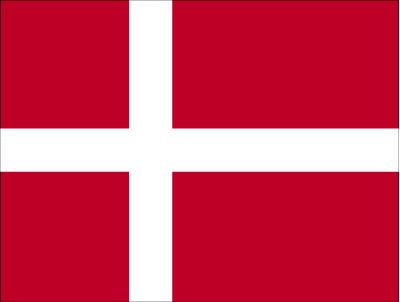
Denmark

- NATO Member: Yes
- Military expenditure as % of GDP: 1.2%
- US population identifying as Danish: 1,315,302
- Total trade with US (2015): $10,076,225,825
- Foreign direct investment from the US (2014): $14,108,000,000
Priorities in the transatlantic relationship
Denmark is dependent on the US for security assurances, and Danish engagement in Afghanistan, Iraq and Syria has facilitated the building of an even closer relationship. Within the security sphere, counter-terrorism and intelligence cooperation are Denmark’s main priorities. The Arctic region is also significant, as Denmark is able to assume a posture resembling that of a “greater” power due to its geographical reach in the region. Arctic cooperation is especially important as the region’s significance has risen, in part because of the opening up of water-ways, which will enable new shipping routes and new economic activity. Russia is also a key issue due to its aggressive posture over the past couple of years. On trade, Denmark’s second priority in the transatlantic relationship, the Danish government closely monitors developments in relations to TTIP, and expects that a deal will be finalised in the near future.
National comparative advantage
Denmark views TTIP as an important aspect of the transatlantic relationship. It believes the EU should assist the new US president in taking this forward as vigorously as possible. When it comes to defence, Denmark believes European allies hold a great deal of leverage through NATO and through their support of overseas operations. Denmark believes that EU states, by cooperating in the coalition against ISIS, can steer the US towards other agendas of mutual interest.
Denmark has certain assets that it feels are appreciated by the US, such as allowing US troops to be stationed at the Thule airbase in Greenland, its expertise in maritime operations, which are coordinated by the UN-backed Organization for the Prohibition of Chemical Weapons (OPCW), and an extensive diplomatic network. Brexit is a major point of discussion in Danish-US bilateral communications, as Denmark has traditionally been closely aligned with the UK.
The role of EU and NATO
For the most part, Denmark does not work bilaterally with the US. However, there have been bilateral conversations about TTIP, because the Denmark feels the need to make itself heard on this dossier. When it comes to questions of regional security, discussions in NATO are prioritised, even if the country recognises that the US always has the final word. The EU is regarded as a better forum for member states to express their views fulfilled across an array of policy areas.
Views on the US elections
The government and opposition both have broadly positive views of the US. The US relationship is considered to be very important to Denmark and the current government’s rhetoric follows that of US foreign policy seamlessly. The public is more apprehensive about the relationship with the US than the government, especially after Danish engagement in the Iraq and Afghanistan wars. That said, the Danish public has been very supportive of the decision to join the American-led coalition against ISIS, and on a general level, it is understood that there are many common social values between Danes and Americans. Neither the government nor the main opposition parties have wanted to categorically denounce Trump, with some acknowledging that he does give voice to marginalised groups who have legitimate grievances. Still, Trump’s comments on Vladimir Putin and the fight against ISIS have been noted and there are fears that a Trump victory could destabilise international relations.

Estonia

- NATO Member: Yes
- Military expenditure as % of GDP: 2.0%
- US population identifying as Estonian: 29,468
- Total trade with US (2015): $779,351,331
- Foreign direct investment from the US (2014): $145,000,000
Priorities in the transatlantic relationship
The Estonian government’s primary concern in the transatlantic relationship is security, with NATO central to its vision of military deterrence and collective defence. The US is viewed as the main guarantee to the long-term sustainability of NATO and as the main counter-balance to Russian aggression. The importance of counter-terrorism is recognised by the Estonian government, but due to limited financial resources it is seen as an area where Estonia can only support the US and NATO, without making any key individual contributions. The same applies to the conflicts in the Middle East and North Africa region.
Trade and investment are also vital for Estonia in the transatlantic partnership. The success of Estonian exporters depends to a large extent on the US, since global supply chains mean the final consumer of exports from Estonia (often via other EU states) is, in many cases, the US.
National comparative advantage
Estonia believes that the EU’s assets in the transatlantic partnership are its history of cooperation on military and defense issues through NATO, and common economic interests such as counter-balancing rising powers such as China. The Estonian political elite believe that the country is seen as a loyal and trustworthy ally by the US, and one which has developed important competences on e-governance, cyber security and modern warfare. These competences have also opened up new opportunities for Estonia to cooperate with the US.
The role of EU and NATO
NATO is the principle forum of transatlantic cooperation for Estonia, given its focus on security matters. Estonia also belongs to the group of countries who contribute more than the 2 percent of GDP guideline for defence expenditure, and since the Russian-Georgian conflict in 2008, Estonian coalition parties have maintained the line that defence cuts should not even be debated. On the contrary, increasing defence expenditure to 3 percent has been discussed significantly. In practice, Estonia is also engaged in bilateral cooperation with a range of partners within the EU. Trade negotiations through the EU are regarded as indispensable. However, in other areas Estonia feels that the EU adds less value, for example on the Luxembourg leaks or other tax avoidance issues.
Views on the US elections
Estonia is very supportive of TTIP, and hopes that an agreement can be concluded between the EU and the US. It is expected that TTIP will be passed should Hillary Clinton win the presidency, but there are doubts as to whether Donald Trump would take it forward or not. On foreign policy, a Clinton win would probably lead US foreign policy to continue on its current path, with the Syria conflict and ISIS being the biggest challenges. There is a belief in the Estonian administration that in case of a Donald Trump victory, Putin will feel more free to take an aggressive stance in the international arena. This will, of course, have an impact on the Baltic region, on Ukraine, and also on Syria.
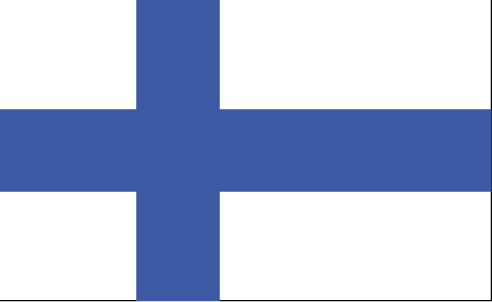
Finland

- NATO Member: No
- Military expenditure as % of GDP: 1.3%
- US population identifying as Finnish: 641,851
- Total trade with US (2015): $6,239,767,655
- Foreign direct investment from the US (2014): $1,784,000,000
Priorities in the transatlantic relationship
The most visible areas of cooperation between Finland and the United States are security and defence, and trade and investment. The US is the most important bilateral partner for the Finnish defence administration. Most of Finland’s pivotal military equipment has been bought from the US, and a bilateral defence cooperation agreement was signed in October 2016. The Baltic Sea region is a priority for Finland in translatlantic cooperation, amid strong concerns about Russia’s growing military presence there. Hence Finland has made efforts to strengthen its relations with both NATO and the US. Finland and the US also share a similar view of the conflict in Ukraine. However, the EU is still Finland’s most important framework for dealing with the Ukraine crisis.
In terms of trade, the US is of vital importance for Finland, currently ranking as Finland’s most important export market outside the EU. Moreover, reaching an agreement on TTIP is a central objective of Finland’s current government.
National comparative advantage
Finland takes the view that it is in the best interest of European states to take more responsibility for their actions, and to make significant contributions in areas of mutual interest and cooperation with the US.
Foreign Minister Timo Soini has emphasised that Finland should take more of the initiative in its relations with the US, while being ready to respond quickly and flexibly to initiatives put forward by the US, if and when these align with Finland’s interests. Finland regards itself as one of the European states more inclined to take responsibility for its own security, by maintaining credible national defence and working closely with partners in the Nordic-Baltic region, the EU and NATO. This is seen to be very much in line with what the US expects from its European partners.
The role of EU and NATO
Finland, as a small member state, respects the division of competences, with the EU being responsible for certain policy areas, such as trade. Finland also strives for strong EU-US relations. This notwithstanding, Finland also works bilaterally with the US on some issues. Although Finland is not a NATO member, the country has recently further intensified its relations with the alliance in the framework of NATO’s “enhanced opportunities” partnership. This has granted Finland greater access to the different NATO forums. Finally, the last two meetings between President Obama and President Sauli Niinistö took place in the framework of a broader Nordic meeting, also involving Denmark, Iceland, Norway and Sweden.
Views on the US elections
Government ministers have refrained from making any direct statements in favour of any of the US presidential candidates. Foreign Minister Timo Soini noted that Finland would be able to work with both of the major candidates. On the other hand, Soini also said that the next US president should not make the US more “protectionist”. TTIP is an important objective for the Finnish government, which remains confident that a deal can be reached.There seems to be an implicit concern that Donald Trump’s election would increase the unpredictability of US foreign and security policy. This is partly because of a feeling that the positions represented by Trump are not fixed, and indeed could very well change. A poll of the Finnish electorate was conducted by YouGov in March 2016, with 47 percent favouring Hillary Clinton, from a list of five potential candidates.

France

- NATO Member: Yes
- Military expenditure as % of GDP: 2.1%
- US population identifying as French: 7,969,633
- Total trade with US (2015): $80,146,797,850
- Foreign direct investment from the US (2014): $76,823,000,000
Priorities in the transatlantic relationship
For the French government, cooperation on security matters is the top priority in transatlantic relations. There are high expectations that the current level of coordination with the US will be maintained, and even deepened, with the next US administration. Security has always occupied a central position in Franco-US relations and the 2015 and 2016 terrorist attacks and the direct involvement of French troops in military operations in Africa and the Middle East have put all other political matters on the backburner. Cooperation with the US on counter-terrorism is regarded as the most important security issue, followed by the Middle East, Russia, Ukraine, and the eastern neighbourhood.
Trade and investment are the second priority. The French government does not support continuing negotiations on TTIP, and is sceptical that a new US administration will lead to a positive change in approach, but welcomes any initiatives to foster economic growth and foreign investment in France.
National comparative advantage
France believes the EU should emphasise economic power rather than hard power in the transatlantic alliance, the effectiveness of the EU sanctions against Russia and Iran being good illustrations. However, this approach relies on strengthening economic growth in Europe, and in particular in the eurozone, which France views as a priority.
At the same time, France sees an increase in European defence spending and military capacity-building as essential, and views itself as a leader within the EU in this sense, as it has demonstrated by its willingness to intervene militarily in key regions of European interest. Over the past four years, since the UK 2013 House of Commons vote against Syrian intervention, France thinks that US-French cooperation has become even closer.
France views its diplomatic capacity to generate global debate – with recent examples on the second Iraq war, and on aspects of the TTIP talks – as a source of clout within the transatlantic relationship. The threat of France’s ability to act as a “troublemaker” can work to the EU’s advantage in strengthening its negotiating position vis à vis the US.
The role of EU and NATO
France is pragmatic in its approach to transatlantic cooperation: Given that its priorities lie in the domain of security and defence, the French government favours a bilateral approach to problem solving. It does also engage NATO on some issues, to achieve its goals. Generally, security in eastern Europe is coordinated through NATO , while cooperation on Europe’s southern neighbourhood is coordinated at the bilateral level. The P3 (US-France-UK) which has been engaged more and more in recent years, is expected to remain a key format for military and intelligence affairs even after Brexit. EU-US dialogue is perceived by France to be of limited use, although with some important exceptions, such as sanctions.
Views on the US elections
The French Socialist government, and leading figures in the main opposition party have been clear in their support for Hillary Clinton. Donald Trump’s comments in July 2016 that ‘France is not France
anymore’ met with quick responses from both President François Hollande and Prime Minister Manuel Valls. Valls also accused the opposition of succumbing to a “Trumpisation of the mind” in their unfounded attacks on the government following the Nice attacks. In the event of a Clinton victory, the French administration hopes for more US attention on the Syrian conflict and ISIS. They are concerned that a Trump victory might see lead to a shake up of traditional US alliances and the forming of a new partnership between Washington and Moscow.

Germany

- NATO Member: Yes
- Military expenditure as % of GDP: 1.2%
- US population identifying as German: 45,526,331
- Total trade with US (2015): $176,095,824,686
- Foreign direct investment from the US (2014): $115,533,000,000
Priorities in the transatlantic relationship
Germany requires a strong transatlantic relationship in order to tackle a range of international crises and security threats, some which have a direct impact on the country, such as Ukraine, the refugee crisis, and terrorism. The second priority for Germany is trade and investment, whether TTIP is concluded or not. If TTIP should fail, the EU and the US will have a hard time rethinking trade and investment, as rising global players are pushing forward with free trade agreements, challenging the wealth and power of the West. Against the background of the NSA spying scandal, privacy and human rights are also of considerable interest to the government. Germany’s history, having involved a period of dictatorship, means that such issues remain a sensitive matter for the public. The importance of developing a sustainable framework for the US digital economy and how it operates in Germany and Europe is also a concern.
National comparative advantage
In Germany’s view, the main thing the EU and Germany have to offer the US is trade and economic opportunity. TTIP and access to European markets are crucial for the US economy. The EU, with Germany’s close involvement, has also proven its ability to set up a framework for negotiations on critical issues, for example on Iran and Syria, while the EU’s participation is necessary for any effective sanctions regime. The dominant thinking in Germany is that the country is the most important partner in the EU for the US. This is linked to its growing economic and political influence in the EU, and the simultaneous decline of other partners such as the UK and France. Chancellor Angela Merkel and President Barack Obama have had an excellent working relationship.
The role of EU and NATO
Germany’s preferred channel for working with the US varies according to what sort of policy area it is working on. On security and defence, NATO is the preferred framework. On trade negotiations and data protection, the EU takes the lead. However, due its improved access to the Obama administration and the growing importance of Germany in international affairs, bilateral cooperation has become more prevalent, particularly in crisis management. Germany has taken a prominent role on weighty subjects such as the Iran nuclear deal, the Syria support group, and a common European approach towards China.
Germany prefers to coordinate its position with EU partners, especially France and the UK before engaging with the US. But after Brexit, the US will probably expect Germany to take an even stronger leadership role in sustaining European cohesion, and to make a greater financial and military contribution to European security.
Views on the US elections
The German government unofficially favours Hillary Clinton over Donald Trump. Both Clinton and Chancellor Merkel share a pragmatic and sober approach to global affairs, while Clinton stands for continuity in US foreign policy and a continuation of the positive relationship Germany enjoys with the Obama administration. To Germans, Donald Trump represents sheer unpredictability. A July 2016 poll showed that 88 percent of the German population favoured Clinton, with only 5 percent expressing support for the Republican candidate. Right-wing populist party Alternative für Deutschland is the only German party that has expressed support for Trump. As for the future, Russia is expected to be the most destabilising factor in the international system, so any possible
cooperation between Trump and President Vladimir Putin would add a whole new element of unpredictability. Under Trump, there are also concerns about trade and investment, as he is critical of free trade agreements in general.
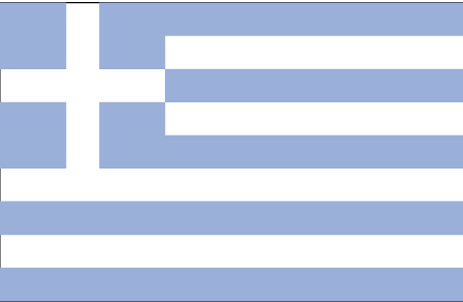
Greece

- NATO Member: Yes
- Military expenditure as % of GDP: 2.6%
- US population identifying as Greek: 1,280,897
- Total trade with US (2015): $2,173,522,823
- Foreign direct investment from the US (2014): ($447,000,000)
Priorities in the transatlantic relationship
Economic and financial affairs are of high significance in the Greek-American relationship. The chief interest of the Greek government is to secure the support of the US administration in the ongoing financial crisis. Since the beginning of 2015, the new leftist government of SYRIZA has welcomed the US endorsement of some of its fundamental positions, mainly the need for an end of austerity as well as for debt relief of loans given by eurozone countries.
Prime Minister Alexis Tsipras maintains good relations with Russian President Vladimir Putin, but has made practical foreign policy choices that serve US interests more than Russian ones. These include the participation of Greece in the construction of the gas pipeline Interconnector Greece-Bulgaria, as well as the construction of an offshore liquefied natural gas terminal in Alexandroupolis, which the American company Cheniere Energy is interested in buying a stake in. Athens is worried about its neighbor Turkey and its internal turmoil, but believes that Washington could act as a guarantor of peace in the Aegean.
National comparative advantage
Following Brexit, Athens believes it has become even more significant in US eyes. It argues that a potential exit of Greece from the eurozone would further destabilise Europe and be an additional concern to Washington. Furthermore, Athens thinks its precarious economic position might attract more US financial support, since it expects the US to do everything possible to avoid another problems in the region.
Despite the issues Greece currently faces, it considers itself a beacon of democratic stability in a neighborhood prone to instability and violence. Even more importantly, it occupies a critical geographical location as a gateway to the EU. As a NATO member Greece provides important military facilities to the US, such as the base of Souda on the island of Crete.
The role of EU and NATO
Although Greece’s preference is to work bilaterally with the US, as a matter of principle Greece aligns its policy with that of multilateral organisations such as NATO and the EU. The country believes that its position – also vis-à-vis the US – becomes stronger when it acts through these bodies. Nevertheless, the current economic and refugee crisis has led the Greek government to bilaterally approach the US in order to seek its support.
Views on the US elections
The Greek government expects continuity in American foreign policy should Hillary Clinton win the presidential election in November. The principle concern of Athens is how Donald Trump’s policy will affect the Greek crisis. On 1 July 2015, Trump gave an interview on Fox Business suggesting that he “wouldn’t get too involved” in the Greek crisis. Athens is therefore concerned that as president Trump would not act as a counterbalance to Chancellor Angela Merkel, possibly paving the way for a change in the bailout terms and/or debt relief.
Furthermore, Greece shares the general fear that a Trump victory could undermine the EU position at the international level because he does not seem to count on Europe or to value its role in the world. He also considers NATO an “obsolete” organisation. Trump’s rhetoric against “radical Islam” and his
promise to eliminate the Islamic State has caused additional anxiety of a new large-scale war with unpredictable results.
However, the potential evolution of a new harmonious relationship between the US and Russia on the basis of what Trump has said during the campaign about Putin is not necessarily seen as a negative thing by the Greek government.
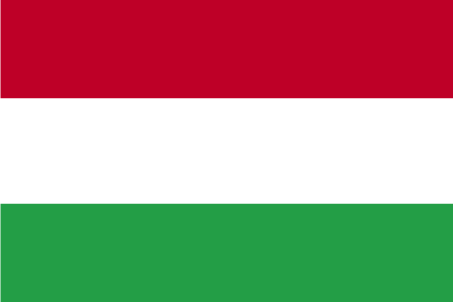
Hungary

- NATO Member: Yes
- Military expenditure as % of GDP: 0.8%
- US population identifying as Hungarian: 1,411,132
- Total trade with US (2015): $7,493,089,683
- Foreign direct investment from the US (2014): $5,879,000,000
Priorities in the transatlantic relationship
Trade and investment are the most important aspects of Hungary’s foreign policy in relation to the US. The US is already the second biggest investor (after Germany) in Hungary. Security cooperation will also remain central for the government, although it is largely conducted within the NATO framework. In the context of the refugee and migration crisis, which the Hungarian government strongly links with an increasing terror threat, the importance of counter-terrorism and intelligence cooperation is increasing. In Hungary, the rise of ISIS is considered a root cause of the current refugee and migration crisis. The country is therefore willing to cooperate more actively on counter-terror activities. It has sent 150 troops to Irbil in northern Iraq, cooperating with the US as part of the international coalition. It also cooperates with the US in the western Balkans.
However, in political terms, the US-Hungarian relationship has deteriorated under Prime Minister Viktor Orbán’s leadership. His government is convinced that the US is picking on Hungary, and contends that the financier George Soros is telling President Obama and Hillary Clinton what to think about the country. Generally, Orbán also tends to overestimate the significance of Budapest for Washington.
National comparative advantage
Hungarian officials broadly argue that the EU should to seek to leverage its historical connections with the US. But generally Hungary does not see itself as a powerful actor for shaping or even influencing transatlantic relations, and there is no major strategic thinking in Budapest about how the EU should act toward the US, which reflects the fact that Hungary often doesn’t follow the European mainstream. Some officials suggest that it is not in the EU’s interest to have a very strong US, and to influence this, the EU should use its economic and political toolbox effectively – hinting at the recent European Commission ruling on the Apple corporate tax case.
The role of EU and NATO
Although its capacities are limited, Hungary’s participation in NATO generally receives some positive feedback from the US. Considering that US-Hungarian relations are quite limited otherwise, NATO is both the preferred and the main actual framework for Hungarian–US relations. In the EU context, Hungary’s role as a troublesome member and a frequent dissenting voice as part of the Visegrád group means it does not play a central role in transatlantic relations.
Views on the US elections
The government has expressed concerns about the impact of candidates’ policy on the EU’s future. Concerns are mostly expressed about Hillary Clinton rather than Donald Trump, and the biggest current concern is the issue of refugees which dominates the Hungarian government’s rhetoric and actions. In this regard, the position of the Democratic Party troubles Prime Minister Orbán, who believes that Trump’s tough approach to migration would be much more beneficial both for the EU and Hungary. The Orbán government argues that there would be continuity between Obama and Clinton and claims that they want to flood Europe with migrants, which “would kill us” (meaning both Hungary and the EU). However, it is not clear how Trump’s approach to migration in the US would translate into dealing with the issue in Europe.

Ireland

- NATO Member: No
- Military expenditure as % of GDP: 0.4%
- US population identifying as Irish: 32,713,324
- Total trade with US (2015): $48,456,934,647
- Foreign direct investment from the US (2014): $310,598,000,000
Priorities in the transatlantic relationship
Trade and investment are key to the Irish relationship with the US. The country is Ireland’s largest trading partner in services and largest destination for exports of goods. Ireland’s economic recovery has been driven partly by strong investment from the technology sector. Thanks, in part, to controversial low taxes, there are now over 700 US firms in Ireland, which employ just under 7 percent of the Irish workforce. Privacy has become an important factor for Ireland since changes in privacy laws could potentially have large consequences for US IT firms, and these companies have sought Irish government support to drive thinking in the EU on legislative changes. Another significant issue in the relationship is immigration reform, with an ongoing debate about the status of thousands of undocumented Irish migrants. Regarding foreign policy, Ireland is a strong supporter of joint EU-US endeavours in the Middle East, and is working to advance its agenda on human rights and development.
National comparative advantage
Cultural ties between the two countries are seen as the main asset in the relationship for Ireland, with 10 million US citizens reporting that they have “Irish only” roots. The Irish-American community still has some influence in US politics, especially in the Democratic Party, and keeping good and visible relations with Ireland is seen as an important matter for the US. Ireland is the only European country whose leaders have a scheduled bilateral meeting with the President of the United States each year, which takes place on Saint Patrick’s Day. This meeting usually also involves private meetings with key figures on Capitol Hill. With the UK leaving the EU, Ireland will become the last English-speaking country in the EU, which can also be a useful asset. In the realm of trade, the low corporation tax rate in Ireland and other EU countries will remain an attractive prospect, encouraging further US investment for the foreseeable future.
The role of EU and NATO
Ireland work with the US bilaterally and through the EU. The bilateral avenue allows Ireland to air specific interests, but the EU route amplifies Ireland’s voice. Ireland has extensive dealings with the US at present on taxation, immigration, and investment, as well as the Northern Irish peace settlement. As these are national issues the bilateral side of the relationship might be slightly more prominent at the moment. EU dealings, however, cover a broader range of topics, including TTIP, which is very important to the Irish government. The government is relatively optimistic about TTIP, believing that it could pass in the next two to five years. Delays caused by the uncertainty surrounding the post-Brexit relationship with the US and the anti-globalisation sentiment in the US and Europe are not seen as fundamental obstacles, although they will slow the process down.
Views on the US elections
Donald Trump’s rhetoric is anathema to the Irish, and has been met with disdain and ridicule by all the major parties, media outlets and by the public. Though the government has not officially endorsed one of the candidates, the Taoiseach has made his personal preference clear. Apart from ideological differences, Ireland also has more pragmatic reasons to want to avoid a Trump presidency. Ireland is highly dependent on foreign direct investment, which in turn leaves it exposed to external shocks. Trump is seen as a deeply destabilising influence on the global order which would negatively influence Ireland’s economy. Hillary Clinton on the other hand benefits to a great degree in Ireland from the “brand recognition” associated with her surname. Bill Clinton is quite fondly remembered in Ireland, where his administration played a significant role in the Northern Irish settlement. In general, Clinton is seen as a more stable alternative to Trump.
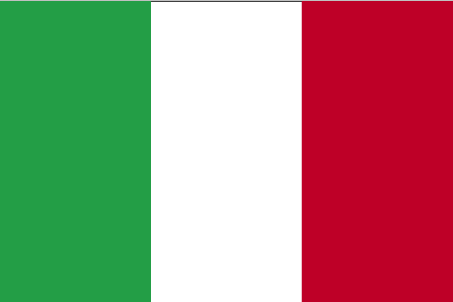
Italy

- NATO Member: Yes
- Military expenditure as % of GDP: 1.3%
- US population identifying as Italian: 17,070,496
- Total trade with US (2015): $61,513,864,920
- Foreign direct investment from the US (2014): $26,733,000,000
Priorities in the transatlantic relationship
Strengthening security ties is the priority for Italy in the transatlantic relationship. The government will encourage the new administration to intensify or at least maintain its commitment on a number of foreign policy areas. These include the fight against terrorist organisations and the stabilisation of the crises in the Middle East and North Africa, especially in Libya. Trade and investment are also high on the agenda in Rome. The government has pushed actively for a successful conclusion to the TTIP negotiations, and will seek to explore alternative forms of partnerships in trade and investment with the US if necessary. In the last three years, the Italian government has increased its spending on international aid as a tool to alleviate the effects of the refugee crisis. Cooperation with the US government on this matter would be a third priority in coming years.
National comparative advantage
Italy sees its location on the Mediterranean as a great asset in its relationship with the US, not least because of the proficiency of Italian diplomacy in the region. With tactical US nuclear weapons based in Aviano and numerous US assets located at the aerial base of Sigonella, Italy has generally been willing to answer the US’ requests for military assistance, for example in Afghanistan, Iraq, and in the coalition against ISIS.
A third advantage for Italy could be its long-standing relationship with Russia, which diplomats think could be helpful if and when the US seeks a détente with Russia. For Italy, the advantage of being in the EU when it comes dealing with the US are its economic power as the wealthiest and most integrated economic bloc in the world, cooperation on security and counterterrorism, and cooperation on climate change and development.
The role of EU and NATO
Transatlantic relations remain one of the pillars of Italian foreign policy, and the government prefers dealing with the US bilaterally on such matters. The Atlantic approach has led to good economic and political relations with the US, but Italy is aware that it matters less to the US than some other member states in the EU. The government is keen to establish a bilateral dialogue on some key issues, hoping that this will improve its standing with the US. In practice the US and Italy work most closely together through multilateral channels, and then mostly via NATO. This sees them cooperate in the Kosovo Force and the anti-piracy operations in East Africa, while Italy hosts over 30,000 US soldiers at several NATO bases.
Views on the US elections
Italy’s Prime Minister Matteo Renzi has fully endorsed Hillary Clinton, saying that he would feel safer knowing that “there will be a great woman who can lead the free world”. The government has many concerns over a Donald Trump presidency, especially because of his statements about pulling back from NATO commitments. There are also fears that a Trump presidency would lead the US to favour the UK over the EU after Brexit, be a threat to the global economy with the danger of commercial wars with China and an end to TTIP, and hamper the stabilisation process in the Middle East. Opposition parties and the population also generally favour Clinton, although some are attracted by Trump’s anti-establishment message, and anti-Islam and anti-immigration politics. Beppo Grillo of the Five Star Movement stated: “Perhaps, Trump is the least worst between the two, but, honestly speaking, there is really nothing special in what the US politics has to offer today.”

Latvia

- NATO Member: Yes
- Military expenditure as % of GDP: 1.0%
- US population identifying as Latvian: 84,870
- Total trade with US (2015): $611,538,879
- Foreign direct investment from the US (2014): No data available
Priorities in the transatlantic relationship
Security is the first priority in Latvia’s relations with the US –both bilaterally and via NATO. Tas the US is considered a crucial partner for maintaining the presence of NATO troops in the Baltic States as an assurance against potential Russian aggression. Russia, Ukraine and the broader eastern neighbourhood are considered the primary regions of interest for Latvia – with counter-terrorism and intelligence cooperation of secondary importance to transatlantic relations. Latvia is a member of the anti-ISIS coalition and is also currently engaged in missions in Afghanistan, Iraq and Mali.
Trade and investment is the second area of interest in the transatlantic partnership, with a focus on attracting US investment to Latvia and the eventual signing of TTIP. Latvia believes that a Donald Trump presidency would scupper attempts to conclude TTIP negotiations.
National comparative advantage
Latvians believe that although EU states rely on the US from a security point of view, the US is also dependent on European states as partners with a common worldview and ideology, with whom it can cooperate in international forums such as OECD and the UN, and also as members of NATO..
Latvia believes that within this US vision of Europe, it plays an important role as a state that was formerly part of the USSR, but which is now integrated in NATO, EU and OECD, bringing expertise on the Eastern Partnership and Central Asian countries. To some extent Latvia’s vulnerability towards Russia might also be considered a comparative advantage in relations with the US, as Russia is one of the top US security priorities. Additionally, Latvian society, government and to an extent the opposition is generally pro-American, which greatly eases cooperation in bilateral and multilateral settings.
The role of EU and NATO
Latvian cooperation with the US is generally carried out within the context of NATO, as NATO and the US are considered guarantors of national security. Although there is also some bilateral security cooperation, it is carried out in accordance with EU and NATO policies.
It has to be noted, however, that bilaterally the US is more proactive than Latvia, and some Latvian opposition MPs believe that concerns voiced by Donald Trump during his election campaign in relation to NATO states “free-riding” might have been avoided had there been more bilateral effort made by Latvia and other nations.
Views on the US elections
Due to Latvia’s security reliance on the US, both the government and the opposition parties are very careful not to show any preference between the presidential candidates, although unofficially government and officials believe that the US would be a more reliable partner under Hillary Clinton (especially in national security matters), with some viewing a Trump presidency as a potential “disaster”.
However, if Hillary Clinton took a more interventionist approach than President Obama has done in the Middle East and elsewhere, Latvia would be concerned about how Russia might react. It also foresees some potential tension in EU–US relations due to growing populism across the EU. After the unsuccessful coup d’état and growing totalitarianism in Turkey, US-Turkey relations are also more complicated, which could signal more difficulties for EU-US relations.

Lithuania

- NATO Member: Yes
- Military expenditure as % of GDP: 1.1%
- US population identifying as Lithuanian: 630,006
- Total trade with US (2015): $1,640,976,126
- Foreign direct investment from the US (2014): No data available
Priorities in the transatlantic relationship
There is an overwhelming agreement among experts and politicians from all sides of the political spectrum that major security issues will remain the top agenda item for Lithuania in its relations with the US for the next four years. The US is the main security guarantor for Lithuania and there is a big distance in terms of importance between security issues and all other issues.
Trade and investment are the country’s second priority, and Lithuania is interested in developing bilateral economic and trade cooperation ― particularly in the energy sector ― with the US. Lithuanian politicians also perceive themselves as strong supporters of TTIP. Strong economic relations with the US are also important for Lithuania in order to aid a strong US presence in the region as a deterrent to possible Russian aggression.
National comparative advantage
Lithuania believes that despite greater EU reliance on the US than vice versa, the US sees certain EU assets as vital, including European markets, the EU’s support of the US as a global leader in promoting the rule of law, democracy and human rights, and the military role that certain EU states are playing in the Middle East.
Lithuania believes that it is seen by the US as a key supporter of the transatlantic link, as a state that is very active and visible in countering Russian influence, and in supporting democratic entrenchment in eastern Europe. It has also played an active role in the military intervention in Afghanistan and the reconstruction effort.
The role of EU and NATO
Bilateral cooperation is regarded as the most effective way to promote Lithuania’s national interests internationally. The second preference for cooperating with the US is through NATO. Other formats are not perceived to be particularly important or effective, with the exception of the UN Security Council during Lithuania’s temporary membership (2014-2015), when Lithuanian officials made particular efforts to coordinate their agenda and position with Washington. The OSCE is regarded as important on certain issues including the promotion of democracy in Eastern Partnership countries. EU-US cooperation is not seen as particularly effective or vital for Lithuanian national interests, which centre on security. TTIP negotiations are an exception, because of the lead role of the European Commission.
Views on the US elections
Changes in US politics are judged in Lithuania by the effect they might have on the security situation in the region. If changes to US policy create more space for Russia’s manoeuvres and aggression, that will be a major worry. Lithuania fears that under Donald Trump the US presence as a security guarantor in Europe could be diminished. A change in US attitude towards intelligence cooperation is also something that Lithuania fears, but few truly believe any change is on the horizon. International terrorism and the situation in the Middle East are expected to continue to be destabilising elements in the event of either candidate winning, but these and other international issues are viewed in Lithuania through the lens of their possible effect on Russia’s behaviour.
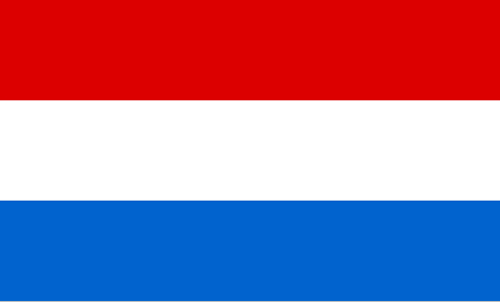
Luxembourg

- NATO Member: Yes
- Military expenditure as % of GDP: 0.5%
- US population identifying as Bourger: 38,811
- Total trade with US (2015): $2,063,938,247
- Foreign direct investment from the US (2014): $465,160,000,000
Priorities in the transatlantic relationship
As a small country, Luxembourg recognises its limited influence in the world, and is mainly interested in what threatens its bigger neighbours. Its chief worries for the future are the state of the EU and the economy. In transatlantic relations, trade is a priority, with the second highest level of foreign direct investment in the country coming from the US. Closing the TTIP deal as soon as possible is a major goal for the government. A second priority is counter-terrorism and intelligence cooperation, on which bilateral contact is frequent. Luxembourg is also concerned by Russia and wants to see a solution to the conflict in Ukraine. Luxembourg values cooperation with the US through NATO on the Middle East.
National comparative advantage
Luxembourg sees itself as a good export market for the US and a solid trading partner. Luxembourg’s financial sector and its geographical location in Europe gives it a competitive advantage over some other member states. Luxembourg has also collaborated closely on security issues with the US. There is a strong historical connection with the US as a third of the Luxembourg population emigrated to the US in the nineteenth century.
As for EU leverage, politicians see positive collaboration with the US in the past as something to build on. Luxembourg believes that the EU is valued for its role in negotiations with Iran on the nuclear deal, and its financial and technical support for efforts to destroy chemical weapons. Most of the member states are also members of NATO, and share the same values and principles as the US ― democracy, rule of law and human rights.
The role of EU and NATO
Luxembourg’s diplomacy is oriented towards multilateralism in the EU, NATO and UN, and is based on the firm conviction that the world is safer because of multilateral exchanges. Both Luxembourg and the US are founding members of these institutions and have collaborated from the start. Luxembourg sees itself as a mediator that is capable of building consensus on sensitive or divisive issues.
There are some doubts about the role of the EU after Brexit, especially regarding the TTIP negotiations, in which the UK played a big part. Luxembourg is also worried that without Britain holding the EU back, some powers would be moved from NATO to an EU army, which would also damage transatlantic relations.
Luxembourg has long-standing and positive bilateral relations with the US. Apart from the early mass emigration, the Grand-Duchess Charlotte worked closely with President Roosevelt during the Second World War, while the US played a big role in the country’s liberation during the war.
Views on the US elections
The government has welcomed many initiatives of the Obama administration, for example its anti-nuclear efforts and stance on migration. The government has not commented on the elections directly, but it is clear that Prime Minister Bettel has no time for populist politicians. In general, Hillary Clinton is favoured in Luxembourg, since Donald Trump is not seen as a competent or reliable partner. The opposition Christian Social People’s party has more clearly stated that they support anyone but Trump, describing his incompetence as scary. Apart from the effects of a new administration on the economy, Luxembourg is worried about terrorism and Russia, but feels it cannot do much to influence developments in transatlantic relations on these issues.

Malta

- NATO Member: No
- Military expenditure as % of GDP: 0.6%
- US population identifying as Maltese: 39,676
- Total trade with US (2015): $716,216,805
- Foreign direct investment from the US (2014): $902,000,000
Priorities in the transatlantic relationship
The government of Malta seeks to enhance trade relations with the US and supports the signing of TTIP by all relevant parties as soon as possible. In particular, Maltese MPs cite the broadly positive effects of free trade agreements and the potential benefits they can usher in for the maritime industry and financial services sector. Security cooperation and limited intelligence sharing with the US also remain top government priorities, not least because Malta lies on the geographic frontlines of both the central Mediterranean migration corridor and the conflict in Libya. Malta has long maintained strong economic and cultural ties with Libya and the unrest there today has negatively affected economic opportunities for Maltese businesses. Despite a continued decline in the number of irregular migrants arriving in Maltese waters this year, the issue continues to loom large in the national press and in political rhetoric. Transatlantic cooperation on this issue is highly valued.
National comparative advantage
The Maltese government is realistic in its appraisal of Maltese-US relations. Both parties recognise that Malta is a very junior partner and that there remain severe constraints on the extent to which Malta can affect US policy. However, the perception remains that Malta has a comparative advantage in US relations, primarily because it is not a full member of NATO and does not grant the United States access rights to its military base. An assumption exists, both on the street and in the halls of power, that the United States’ primary foreign policy objective in Malta is the acquisition of a status of forces agreement (SOFA). The relevance of this SOFA, or lack thereof, has only increased in light of the civil war and US intervention in Libya. Apart from that, politicians think the comparative advantage of Malta lies in its geo-strategic location, and leverage regarding TTIP negotiations.
The role of EU and NATO
In working with the United States the Maltese government prefers to engage bilaterally and does just that. Bilateral relations are warm, and are based on limited security cooperation, the US provision of a significant refugee resettlement programme, and Maltese support for the signing of TTIP. However, the government is not deaf to the objections to TTIP emanating from other European capitals, especially Berlin and Paris. While Malta is a member of the Partnership for Peace, it is not, and does not envision becoming, a full member of NATO.
Views on the US elections
While members of parliament are generally reticent to express a preferred US presidential candidate, it remains safe to say that the ruling Labour Party, the opposition Nationalist Party, and the population at large favour Hillary Clinton. The unpredictability of Trump’s policies, his penchant for unilateral action bordering on isolationism, and his comments on European security cooperation are just a few examples of why Maltese politicians in both major parties are wary of a Trump administration. On the other hand, they appear to have a clear sense of what to expect from a Clinton administration. As for the general public, Trump’s anti-immigrant posturing and demagogic style don’t resonate with the vast majority of people, except for a small percentage on the right-wing. No matter who the new president is, the Syrian conflict is seen as the biggest problem they will face.
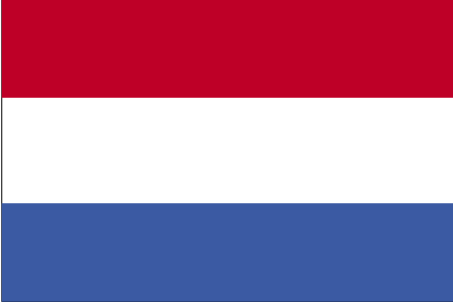
the Netherlands

- NATO Member: Yes
- Military expenditure as % of GDP: 1.2%
- US population identifying as Dutch: 4,141,375
- Total trade with US (2015): $58,254,150,231
- Foreign direct investment from the US (2014): $753,224,000,000
Priorities in the transatlantic relationship
The Netherlands’ traditional priorities have been security and trade and investment. The US is the largest foreign investor in the Netherlands, and the US is the third largest recipient of Dutch overseas investment.
After developments in Ukraine, the Middle East and North Africa, security in the European neighbourhood is more of a priority than ever. The shooting down of flight MH17, which contained a large number of Dutch passengers, has contributed to the Netherlands’ tough stance on Russia. Human rights and privacy rank third as Dutch concerns, with the Netherlands often taking the same position on human rights as the US. The refugee crisis, though an important topic in the country, is not seen as a priority for the transatlantic relationship. It is seen as a European problem to which the US has maintained some distance.
National comparative advantage
The traditional Atlantic orientation of Dutch foreign and trade policy is seen as a comparative advantage in the Netherlands. Dutch-American economic and political ties are old, and the country sees itself as a reliable ally. The Dutch believe that their position on policy issues matters for the US, and that the Dutch government is listened to. However, there is the sense that the relationship has been diminished by the recent Dutch reluctance to engage in military affairs, for example its withdrawal from Afghanistan and limited participation in Libya and the Middle East. More broadly, diplomats feel that regarding security and Russia, the Middle East and counter-terrorism, the US needs Europeans as much as the other way around. The economic power of the EU as well as shared values and norms are also seen as assets.
The role of EU and NATO
When it comes to direct relations with the US, the platform chosen for engagement depends on the policy issue. Given the strong economic relationship and Atlantic orientation of the Netherlands, bilateral engagement is still very important. One issue where the Netherlands does work through the EU is the negotiations for TTIP, which has always been supported by the major political parties. However, with critical statements emanating from Paris and Berlin, party leaders have become wary of championing the agreement.
Views on the US elections
The Dutch government has not made any official statements about the presidential candidates, but it is clear from comments in the media that Prime Minister Mark Rutte does not support Donald Trump. He is especially critical of his plans to stop Muslims from entering the US. The main opposition parties support Hillary Clinton, except for the far-right PVV. There are no great concerns about changes in the transatlantic relationship in the case of a Clinton victory, as she is expected to follow a similar line to her predecessor, if a bit more interventionist. However, the Dutch expect that they will be considerably less engaged with on issues that do not directly affect American interests. Examples include the refugee crisis, human rights, and international development. A more isolationist foreign policy would have negative effects on some key dossiers, such as ensuring
security in Asia. However, in areas like counter-terrorism, Russia and the Middle East, where the stakes are higher for the US, the negative effects of a Trump presidency might be limited.
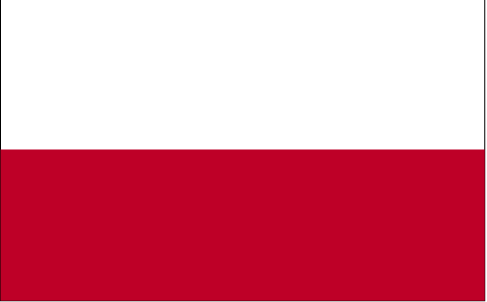
Poland

- NATO Member: Yes
- Military expenditure as % of GDP: 2.2%
- US population identifying as Polish: 9,231,299
- Total trade with US (2015): $9,490,543,631
- Foreign direct investment from the US (2014): $11,516,000,000
Priorities in the transatlantic relationship
Security comes first for Poland in the transatlantic relationship. Russia is perceived as the major challenge to Polish security, and the significance of the US increased dramatically after Russian aggression against Ukraine in 2014. In order to deter Russian influence in Poland’s immediate neighbourhood, Warsaw wants the establishment of permanent military US or NATO bases, or at least the deployment of larger US armed forces, on its territory, and the closest possible cooperation between the CIA and Polish intelligence. The deployment of Polish forces in the Middle East is, in part, an effort to encourage this, by showing willingness to act in a region of vital concern to the US. Poland is also keen to strengthen economic ties with the US and increase direct investment and trade.
National comparative advantage
Poland has three main assets which make it stand out in the EU context for the US: substantial military capabilities as one of the few member states spending above the 2 percent of GDP target on defence; a large economy, and an important strategic position on NATO’s eastern flank. This roughly reflects what it views as the EU’s selling points vis à vis the US: Firstly, that EU military budgets combined represent the largest bloc in the world after the US (although Poland also believes that increasing collective defence investment in line with US demands would be prudent). Secondly it is the key economic partner for the US in terms of foreign direct investment and trade, and TTIP would be an asset for the US as well as the EU. Finally, Poland emphasises the EU’s importance as a partner for the US in international organisations and on the global stage.
The role of EU and NATO
Because of Poland’s strong security focus it prefers to cooperate bilaterally with the US, outside either the EU or NATO framework, and this is where most diplomatic energy is focused. NATO is the second channel that it pursues, with the EU and other international groupings coming after that, and only where necessary – for example on trade issues and in relation to sanctions.
Views on the US elections
Broadly speaking the government, opposition, and the Polish population at large have positive views of the US, but there has been growing concern about criticism from the US administration of domestic political developments in Poland, particularly since the Law and Justice party came to power in late 2015. In the first opinion poll of its kind in 1993 more than 60 percent of Poles declared sympathy towards the Americans. In 2016, this figure was slightly above 45 percent. The main opposition parties support Hillary Clinton for the US presidency, but the upper echelons of government are divided with no strong preference for either candidate. The deputy prime minister declared that the choice between Clinton and Trump is “like the choice between the plague and cholera”. Some major figures have been open in their hostility to Clinton. Jaroslaw Kazcynski, chairman of the Law and Justice party, responded to Bill Clinton’s comparison of the government with Putin’s Russia by suggesting that the once president was mentally ill. With either Trump or Clinton as president, Poland continues to believe that Russia will be the most destabilising actor in the international system.

Portugal

- NATO Member: Yes
- Military expenditure as % of GDP: 1.9%
- US population identifying as Portuguese: 1,373,147
- Total trade with US (2015): $4,323,061,510
- Foreign direct investment from the US (2014): $2,053,000,000
Priorities in the transatlantic relationship
Economic recovery and economic growth have been the priorities of the Portuguese government for the last few years. Consequently, concluding TTIP is a major concern for Lisbon over the next four years. The second priority is security: Since the Second World War, Portugal and the US have established a close military partnership, first embodied in the loan of the Lajes Field Base in the Azores to the US Air Force, and then reinforced in 1949 by the creation of NATO. The close relationship continues, with cooperation continuing on several areas like counter-terrorism and intelligence sharing. The reform of international institutions, international aid and the protection of human rights are always present in diplomatic discussions. Portugal highly values cooperation on conflicts in the Middle East, Russia and the eastern borders of the EU.
National comparative advantage
Portugal used to have an advantage over other EU member states in that it allowed the US to use its airbases. But in 2006 the US started to reorganise its defence policy drastically, and diminished the strategic and logistic use of its military base in Portugal. The chief advantage Portugal enjoys now is its track record as a stable pro-American country. Portugal thinks the EU’s assets in the transatlantic relationship are its support for maintaining a liberal international economy, for democratic values worldwide and for fighting international terrorism. The elections in the US and in various countries in Europe later this year will show whether or not these foundations are still strong. After Brexit, the Portuguese government fears that for cultural and political reasons, the EU-US relationship will never be the same again. The US might get closer to Berlin and Paris to compensate for the departure of London.
The role of EU and NATO
The preferred channel of dialogue between Portugal and the US depends on the subject or problem in question, but in terms of diplomatic culture Portugal is a very ‘multilateral’ country. It is one of the strongest advocates in the EU for closer EU-US relations. It has excellent bilateral relations with the US at all levels, and communication between the two countries is constant. For historical reasons, Portugal has worked for a long time through bilateral or NATO channels. However, in sectors such as trade Portugal knows that it has more leverage when working together with other European countries. On TTIP, which is seen as an opportunity to revitalise the European economy, Portugal has repeatedly tried to unblock the process and prevent it becoming the captive of specific national concerns or interests. As a member of both the EU and NATO, Portugal is always promoting strong policy coordination between the two institutions.
Views on the US elections
Portugal’s government is not concerned about the future of EU-US cooperation if Hillary Clinton is elected president. Not only has she demonstrated during her tenure as Secretary of State that she knows world politics, but throughout the presidential campaign she has clearly voiced that she is much more supportive of transatlantic relations and US involvement in Europe than other candidates. The only downside is her recent negative position towards TPP and TTIP. However, Portugal’s government has profound worries for the future of EU-US cooperation if Donald Trump wins. This is because he has no knowledge or previous experience in international politics; his foreign policy proposals are immoderate and even dangerous; he advocates a kind of neo-isolationism that represents a complete break from the American liberal-democratic interventionism of the post-war period; he is not seriously committed to NATO’s article 5 and to transatlantic relations, and he is flirting with leaders like Putin.

Romania

- NATO Member: Yes
- Military expenditure as % of GDP: 1.4%
- US population identifying as Romanian: 468,994
- Total trade with US (2015): $2,983,851,671
- Foreign direct investment from the US (2014): $2,305,000,000
Priorities in the transatlantic relationship
In light of Russian aggression in Moldova, Ukraine and the Black Sea, as well as the increasing closeness between Turkey's president and Bulgaria's prime minister, Romania is looking to obtain NATO/US assurances of increased security in the region more than ever, specifically in the Black Sea. From Romania’s perspective, increased US support would include assurances such as US missions in Constanta, joint naval exercises, greater State Department involvement in the region and more NATO support for the Alliance’s eastern flank. As a sort of quid pro quo, it would be expected that Romanian missions continue (e.g. in Afghanistan) if required. The strategic partnership with the US on security and defence is highly valued, especially in the Middle East and on cyber-security.
Trade and investment are in a distant second place as a priority. No significant American foreign direct investment is expected in the next five years, but increased capitalisation of companies already present in Romania is a possibility.
National comparative advantage
Romania does not have any special comparative advantage over other European states in dealing with the US, except for a long bipartisan history of engagement with the US post-1989 and an unwavering position against Russia. As for advantages for the EU, Romania is not very optimistic. In Bucharest's view, the EU will be weakened by Brexit, the looming Italian banking crisis, and the still unresolved Greek crisis. The most that Europeans could collectively achieve would be a tempering of the “pivot to Asia” policy by demonstrating Europe’s importance in light of developments with Russia. TTIP has not been a big topic of debate in Romania; there has been more talk of attempting to obtain better visa access for Romanians as members of the EU. Romania expects the UK and the US to cooperate much more closely after Brexit, with the EU-US relationship likely to gradually deteriorate without Britain as a spokesman for US concerns.
The role of EU and NATO
Romania much prefers to work bilaterally with the United States, and it has successfully done so through the Strategic Partnership Initiative, which saw the creation of US anti-missile defence technology in Romania and Poland. The US government is also intimately involved in supporting Romanian democratic institutions, including the Anti-Corruption Prosecutor. Due to this support, the prosecutor’s office has been denounced by some opposition politicians as an agent of Western interests. Romania attempts to be a proactive member of NATO and has previously sent soldiers to Afghanistan and Iraq, and set up a cyber-strategy unit on behalf of NATO in Ukraine. Bucharest oversees the Ukraine Cyber Defence Trust Fund, a programme funded by NATO member countries aimed at strengthening Ukrainian cyber-defence.
Views on the US elections
The US has a very positive image in Romania, especially among the general population. Sources of dissatisfaction aimed at the US have been related to the US support for the DNA, which has often dominated the public discourse of the socialists. Almost all voices in Romania are pro-Hillary Clinton. This is mainly because of the wavering statements on NATO by Donald Trump, as well as his apparent willingness to disengage from Europe as part of his proposed “America first” policy. There is a considerable lack of clarity at this stage and diplomats are trying to understand how much of Trump's rhetoric is merely for campaign purposes and how much is real policy that would be put into action and affect the status quo. They think that the areas of cooperation on the Eastern neighborhood, as well as counterterrorism and intelligence cooperation are most at risk of escalating under a new president.
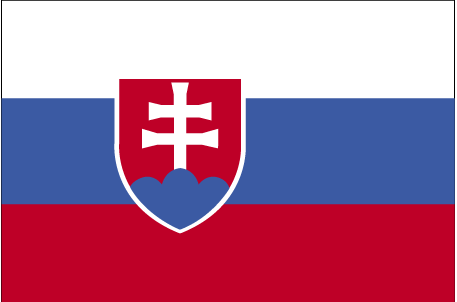
Slovakia

- NATO Member: Yes
- Military expenditure as % of GDP: 1.1%
- US population identifying as Slovakian: 704,601
- Total trade with US (2015): $2,698,528,171
- Foreign direct investment from the US (2014): $749,000,000
Priorities in the transatlantic relationship
Security is Slovakia’s top priority in transatlantic relations, especially when it comes to the Eastern Partnership, the southern neighbourhood, North Africa and Afghanistan. Russia and Ukraine are of particular importance, since further disturbance there could profoundly alter the security picture in the whole geopolitical space of Central Europe.
The second priority is trade and investment, including the planned TTIP treaty, which Slovakia wants to use to strengthen the strategic partnership with the US. The third priority is international aid. Slovakia supports the fight against global terrorism and violent extremism, and supports cooperation with the US within the framework of the UN, OSCE, EU, and NATO. Slovakia will continue to cooperate on the implementation of initiatives against the smuggling of nuclear weapons and materials.
National comparative advantage
Though Slovakia has a good relationship with the US, it does not feel that it has a unique comparative advantage over other European states. The EU as a whole has major assets it can use to influence the US. On security, the role of Europeans in NATO is valuable to the US. Trade and the European market also play a role as tools for cooperation and interaction, which is why Slovakia is keen to upgrade these relations through TTIP. Slovakia hopes that the reform of international institutions could be an area where the US and EU countries can work together, to make sure the structure of global leadership reflects the changing global reality.
The role of EU and NATO
Slovakia prefers to work bilaterally with the US on all levels. As a second option, diplomats will work through the EU and NATO. These two blocs are seen as equally important. In practice, the role of other multilateral combinations is also important, especially the United Nations and export control regimes, where partners exchange information and look for new avenues of cooperation. In some cases, these multilateral combinations overshadow the work of the EU. Slovakia sees trade as a way of establishing interpersonal relations and contacts, and through that establish a framework within which conflicts can be managed, mitigated or even solved. Slovakia thinks that TTIP would help improve cooperation between EU member states and the United States. Slovakia is also eagerly involved in the Visegrád Four, and feels that further cooperation with the US would benefit the group.
Views on the US elections
Slovakia is following the US elections closely and is prepared to work with whoever becomes the new US president. No matter who is elected, it is thought that their main concern should be climate change, which is viewed as the most important destabilising force in the international system. If Clinton wins, Slovakia expects that she will follow the path of the current administration, with the Syrian war and ISIS remaining important challenges for her. If Trump wins, it is feared that international cooperation would be weakened given Trump’s unpredictable statements during the presidential campaign on Russia and the Middle East, among other things.

Slovenia

- NATO Member: Yes
- Military expenditure as % of GDP: 1.0%
- US population identifying as Slovenian: 164,759
- Total trade with US (2015): $1,063,016,988
- Foreign direct investment from the US (2014): No data available
Priorities in the transatlantic relationship
With Europe and Slovenia under pressure from crises in Eastern Europe, the Middle East and the Western Balkans, security is Slovenia’s top priority in the transatlantic relationship. The US plays an important role in all these situations, both directly and as a key member of NATO, and Slovenia believes that it acts as the ultimate guarantor of peace and stability. The US is also an important partner in the fight against terrorism and organised crime. As a small and open economy, Slovenia would typically prioritise trade and investment, but trade with the US is relatively low compared to trade with Russia and China. US-based capital funds have, however, become owners of some important Slovenian assets. Slovenia also seeks US support for its human rights agenda, such as the work of the Slovenia-based de-mining and human security organisation — International Trust Foundation.
National comparative advantage
Slovenia sees its contribution to peacekeeping operations and the fight against terrorism as its most valuable asset in its relations with the US. It has even discussed taking prisoners from Guantanamo in the past. Slovenia’s strategic location can also be considered as an advantage, because it has access to Adriatic Sea and good transit links for cargo from Asia. Slovenia has good connections in the Western Balkans, with Central and East European countries as well as with Russia, and has a presence in Mediterranean politics. Slovenia thinks that the EU is a valuable partner to the US in its common foreign and security policy, its importance as an economic partner and its normative power.
The role of EU and NATO
Slovenia’s favoured mode of cooperation with the US differs according to the issue at hand. There are issues when working through the EU is seen as too much effort and a bilateral approach is preferred. In Slovenia, Brexit is not necessarily expected to damage to EU-US relations. EU member state views were divided before Brexit and will remain divided after it. The Slovenian Prime Minister said that Brexit might kick-start the engine of EU integration again, and that the Union should become less bureaucratic, preserve national sovereignties, and focus on trade liberalisation. On NATO, Slovenian support in the past has been anything but convincing, and popular attitudes towards the US military intervention have been overwhelmingly negative.
Views on the US elections
Slovenians have a very negative image of Donald Trump, and that view extends to right-wing media. Trump’s wife’s apparent expression of shame at her Slovenian roots did not help the candidate’s cause. Negative attitudes towards Trump are probably the main reason for Slovenian support of Hillary Clinton. But even Clinton has not received particularly positive publicity, despite the fact that her husband was the first US president to visit to Slovenia and did a lot for the Western Balkans. Slovenia sees the biggest global challenges as climate change and poverty, and does not expect either of the candidates to push forward any significant changes in foreign policy.
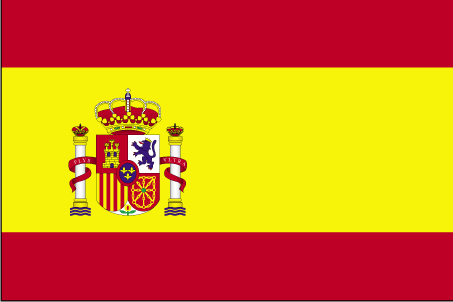
Spain

- NATO Member: Yes
- Military expenditure as % of GDP: 1.2%
- US population identifying as Spaniard: No data available
- Total trade with US (2015): $24,886,816,285
- Foreign direct investment from the US (2014): $36,363,000,000
Priorities in the transatlantic relationship
The Spanish transatlantic agenda is dominated by defence and security issues as well as trade and investment. Public opinion on the US has improved significantly in recent years, giving broader consensus for cooperation. After a decade of downsizing US military presence in Spain, Madrid accepted an upgrade of cooperation on military bases, although this presence is contested by leftist parties. The US is the main trading partner of Spain outside of the EU, and the US has been the largest investor in Spain in recent years. Madrid mostly values cooperation with the US on counter-terrorism and intelligence. A traditional priority of Spanish foreign policy and a key issue for the political and cultural establishment is the situation of the Hispanic community in the US. The country also sees a role for itself as an interlocutor on Latin and Central America and the Caribbean, where Spain sees the US as the other relevant Western power in the region.
National comparative advantage
Madrid perceives an advantage for Spain and the EU in having been reliable partners to the US, in an increasingly contested geopolitical context. The EU and the US share similar values and, in some cases, similar interests. Europeans can also offer counter-terrorism cooperation, and their influence as a bloc in international organisations. The most tangible resources Spain can offer to the US are its military bases ― with a naval base and an airbase providing hubs to US forces in the Middle East. Spain is seen as key for the NATO ballistic missile defence and the projection of US power in Africa. In terms of national politics, Spain sees itself as a good partner because, in contrast to other EU member states, the country does not have any major far-right nationalist parties. There is also a historical bond between the countries, with strong Spanish heritage in the US, especially in Florida and California.
The role of EU and NATO
The military relevance of Spain for the US makes it possible for work to be carried out through bilateral relations, in coordination with NATO. Madrid might prefer to have a more institutionalised bilateral relationship but Washington prefers to keep things as they are. After Brexit, there are some concerns for a weakening of the transatlantic relationship, but Spain remains committed to both deeper integration with the EU and cooperation through NATO. Some analysts hope that Spain and Portugal will be able to partly take over the role of the UK as the main ally for the US in the EU. The Spanish government is a strong supporter of TTIP but is very negative about its prospects due to a lack of support in other EU member states such as Belgium, France and Germany.
Views on the US elections
The Spanish support for Hillary Clinton is almost total, and the choice of Tim Kaine as running mate has been greeted with joy by the Spanish elite who see him as a great friend of Spain. In the event of a Trump victory on the other hand, the US would be seen as the most destabilising element in the international system and that could strengthen a latent brand of anti-Americanism, especially on the left. There are concerns about the possible weakening of transatlantic relations, but Madrid is also concerned about the consequences for the Hispanic community in the US, relations with Mexico and generally with Latin America. Countries such as Colombia, Cuba and Venezuela are going through a moment of profound change and could be undermined by a president like Trump. A Furthermore, a new Middle East policy in a Trump administration could affect Spain by increasing the terror threat and the number of refugees.
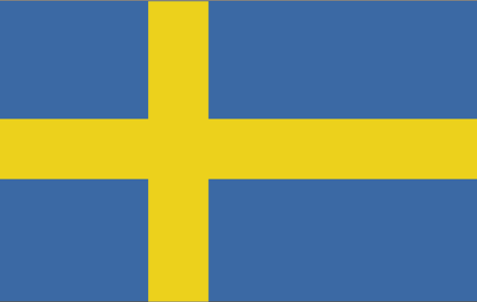
Sweden

- NATO Member: No
- Military expenditure as % of GDP: 1.1%
- US population identifying as Swedish: 3,829,029
- Total trade with US (2015): $14,019,682,250
- Foreign direct investment from the US (2014): $28,842,000,000
Priorities in the transatlantic relationship
Sweden considers a deep and positive relationship with Washington to be nothing less than essential for its national security priority. Lacking the formal security guarantees of NATO membership, Sweden has sought intensive defence cooperation with the United States following the increasingly hostile posture of Russia in the Baltic Sea region.
The humanitarian crisis in Syria has had a major impact on refugee arrivals in Sweden in 2015 and 2016. Sweden sees the need for strong partners to help resolve the crisis in Syria and by extension reduce the flow of refugees to the EU.
Trade and investment also constitute important priorities. The United States is one of Sweden’s main export markets and Sweden is the 11th largest investor in the United States. The TTIP negotiations and transatlantic cooperation on data protection through the EU-US Privacy Shield framework are also of special interest.
National comparative advantage
Sweden believes that the next step in building strong EU-US relations is the conclusion of the TTIP agreement. Sweden thinks it has some national advantage on the economic side stemming from its advanced scientific research, IT sector and environmental initiatives. It has mixed views about how Brexit could affect its national standing. The Swedish government believes that the EU as a whole will become much weaker, unstable and uncertain as a result of Brexit, and Sweden will lose a key ally within the Union. However, some private sector sources have voiced the opinion that companies – including from the US – looking for a new place to set up headquarters within the EU would possibly consider Sweden as a good candidate, given its strategic geographical position.
The role of EU and NATO
Due to its long-standing position of neutrality in case of war, Sweden is not a member of NATO. But Russian assertiveness in the region has propelled Sweden to cooperate more closely with the Alliance, and the country is now part of the Enhanced Opportunity Programme. The Swedish government approved a cooperation agreement with NATO in May 2016, and Sweden’s minister of defence has stated: “We are a partner to NATO and this is the relationship we are to develop.” Nevertheless the Swedish government would also like to see EU level cooperation on terrorism and intelligence moving faster. It still has strong reservations about joining NATO because membership would be seen as provocative by Moscow.
Views on the US elections
Sweden remains a very pro-US country at heart, with polls indicating that Swedish approval of the US consistently at around 60 percent. The government, opposition and the population overwhelmingly favour Hillary Clinton in the election, and no specific fears have been raised about her coming into office. Indeed, the government sees her potential presidency as a real opportunity for its feminist foreign policy to receive increased recognition and to continue the excellent relationship enjoyed with the Obama administration.
Both the Swedish prime minister and foreign minister have expressed concern about Donald Trump’s foreign policy positions. The prime minister has specifically mentioned Trump’s views of Islam, his isolationistic tendencies, and the fact that he probably would take less international responsibility at a time when it is needed as much as ever. Middle East policy – one of Sweden’s key concerns – would be threatened by Donald Trump in terms of fighting ISIS and maintaining the Iran nuclear deal. An isolationist US would leave Sweden exposed and without any ultimate guarantor of security.
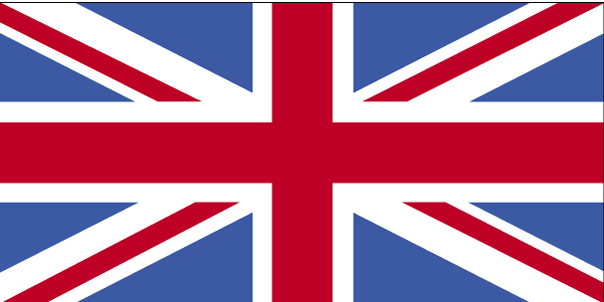
United Kingdom

- NATO Member: Yes
- Military expenditure as % of GDP: 2.0%
- US population identifying as British: 1,397,632
- Total trade with US (2015): $115,070,643,766
- Foreign direct investment from the US (2014): $587,943,000,000
Priorities in the transatlantic relationship
Following its vote to leave the EU, the UK’s priority is maintaining and tightening its existing relationship with the United States. Both trade and security cooperation are central to the future bilateral relationship. The UK is keen to make clear that it is open to global trade, even though the possibility of any bilateral trade deal, or talks towards one, were announced by Obama to be low on the US list of priorities.
Concurrently, the UK will seek to enhance its security relationship with the US, with particular focus on counter-terrorism cooperation, and working together on Russia and the Ukraine conflict. It sees the US-UK relationship as key to countering the perception that Brexit will lead to a more isolationist UK foreign policy. The UK will emphasise the stabilisation of its defence budget, decisions such as the recent renewal of Trident nuclear submarines, and its efforts to contribute to European security, including by sending troops to the Baltic States.
National comparative advantage
The UK has always emphasised its “special relationship” with the US, believing itself to mean much more to the US than just a key player in the EU, NATO or other multilateral forums. Its key concern post-Brexit is to maintain this status through three levers. First, the UK will try to leverage its military and diplomatic cooperation with the US, characterised by extensive cooperation in nuclear weapons, special operations forces, and intelligence sharing as part of the Five Eyes network. Second, the UK will try to leverage its trade relationship because the UK is the single largest foreign investor in the US and vice versa. Third, it will leverage its unique societal links with the US based on a shared language, cultural, and linguistic affinity as well as historical links.
The role of EU and NATO
The UK has always preferred to work bilaterally with US when it has the opportunity to. Where this takes place through multilateral forums such as the UN, the UK prefers to agree positions in coordination with the US beforehand. The UK does not see itself as a “normal” NATO member but rather a privileged interlocutor of the US. The UK has never liked working with the US through the EU, apart from in the area of trade. After the Brexit negotiations are completed, even trade policy will shift back to the bilateral realm and the UK will work hard at ensuring that UK-US cooperation delivers for both sides.
Views on the US elections
In the event of a Hillary Clinton presidency, the UK government’s concerns about destabilising issues in the global environment would remain broadly as they are, with Russia paramount, closely followed by ISIS and the Syrian war. However, the Labour party leadership would be wary of Clinton having a more interventionist approach in the Middle East. The main UK parties are far more concerned about Donald Trump’s foreign policy pronouncements, specifically, his policy of rapprochement towards Russia and his apparent willingness to abandon NATO, his interventionist attitude towards ISIS and his confrontational attitude towards Muslims. If Trump shifts US trade policy in a more protectionist direction, it would conflict with a core British interest in a liberal and open international trading regime. Finally, the uncertainties created by a Trump presidency would dispel any illusions that the special relationship with the US could compensate for the loss of British influence in Europe.
The European Council on Foreign Relations does not take collective positions. ECFR publications only represent the views of their individual authors.

